Threads: Supernatural 11.20 “Don’t Call Me Shurley”
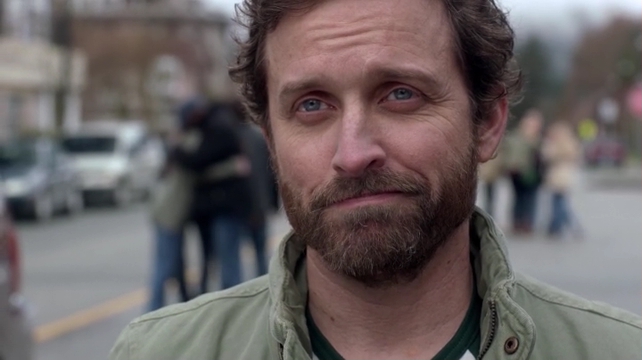
There is so much about “Don’t Call Me Shurley” that I want to discuss. Emotion. Supernatural legacy. Acting. Beloved Characters. Shock. Meta. Storyline. I am overwhelmed. That by itself speaks to the quality and intensity of the script and delivery of this episode. This may turn out to be the longest reflection I have ever written about Supernatural so settle in.
Threads reviews are driven by the episode’s dialog. I listen to the words of the story and try to capture both their literal and figurative meanings. “Don’t Call me Shurley” was a brilliantly written episode. It was an emotional powerhouse filled with sculpted dialog. The impact of this story went far beyond what was said, though. It was stirring on so many levels. It was also elevated by some of the best acting I’ve seen on television. I loved this episode. Absolutely loved it.
Allow me to touch on a few quick points before I dig into the depths of “Don’t Call Me Shurley.”
Acting
Even on my first watch, while I was frantically trying to absorb what was happening – God in the story; the Darkness finally invading Earth; Sam and Dean’s final, desperate moments – I was transfixed by Rob Benedict’s and Curtis Armstrong’s acting.
Read these words:
Metatron: Your light shined on me — me! Oh, and the warmth. But then you left me. You left all of us. It wasn’t just the saps on Earth who were praying to you. The angels prayed, too. And so did I — every day. You want to write the best-selling autobiography of all time, you explain to me — tell me why you abandoned me. Us.
Next time you rewatch this episode, watch Metatron’s portrayal of those words. Curtis put every ounce of his being into those lines.
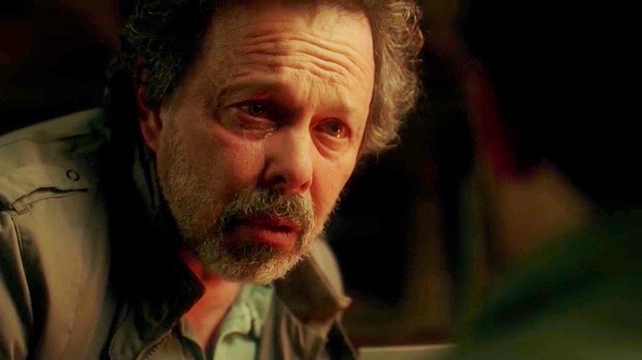
They were given a depth of human emotion that was inspired.
Now read through the scene that blew my mind:
You were just the closest angel to the door when I walked into the room. There’s nothing special about you, Metatron. Not then… not now. Now… I’ve been called many things — absentee father, wrathful monster. But coward… I am not hiding. I am just done watching my experiments’ failures.
Our vulnerable, gullible, lovable Chuck as portrayed by our sweet, innocent, sensitive Rob Benedict became GOD in that moment. He was scary, powerful, intense and definitely not joking.
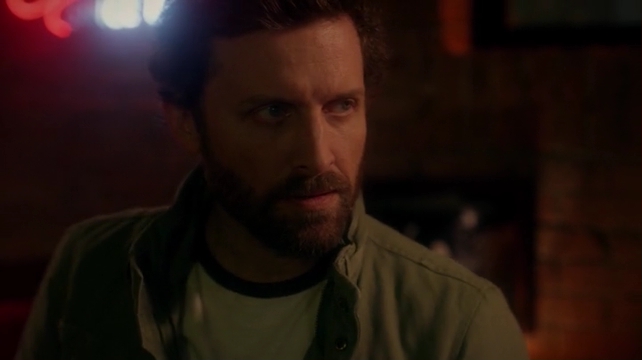
With all due respect, I truly did not know that was inside Rob. Together, he and Curtis elevated this episode to its complete potential.
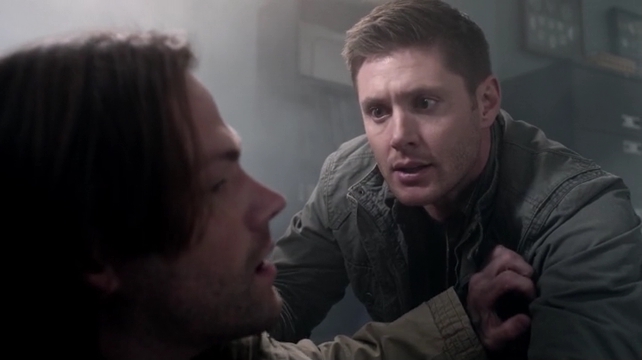
Add to that Jared and Jensen’s emotional, powerful delivery, and we were given a masterpiece of acting.
Supernatural Legacy
Chuck is back.
The Amulet is back. It was in Sam’s pocket. In Dean’s humbled hand, it glowed and led the brothers to God. The symbol of their bond, of their love, led them to God.
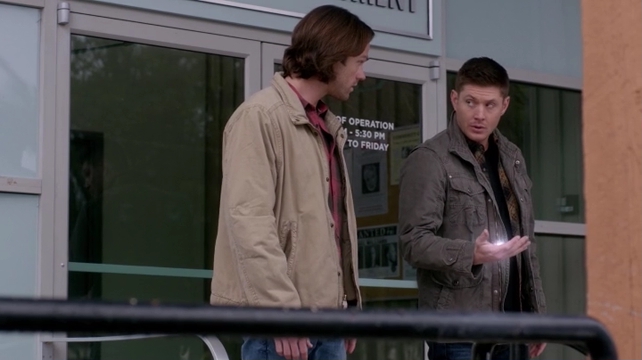
The emotional wallop of those two things alone could fill this entire review. Suffice it to say, wow. Just, wow.
Script and Story
This script was a storytelling masterpiece. The drama and action in Sam and Dean’s world kept pace with Metatron’s conversations with God. As Metatron’s understanding and boldness with God increased, so too did the intensity of the story, and the audience’s stake in what was happening. Metatron was the personification of the viewer, pulling us through the intellectual and emotional acceptance of seeing God. Metatron’s narration included contrition, placation, encouragement, outrage and awe at seeing God and witnessing his intention to not defend his creation. Every word was powerful, and the emotional clout of someone pleading to God on behalf of our beloved, flawed heroes and all of humanity left us reeling.
A powerful path to understanding a person’s reaction to any creative work is to examine what stands out foremost in their mind about it. That will immediately reveal the lens through which they are judging its message and its value. So why did I react so strongly to this story? What do I think about when I replay this episode in my mind? What are its most important messages, at least to me?
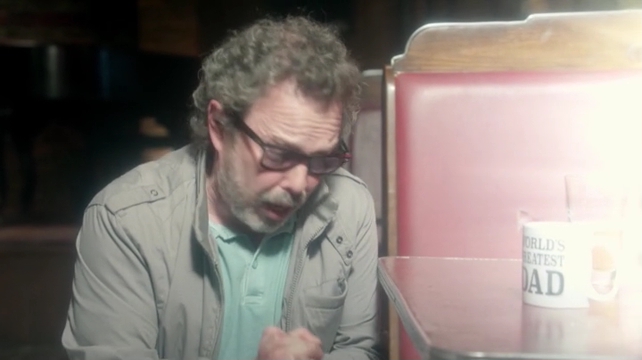
Chuck is God.
For six years, fans have been speculating about whether Chuck was God. SIX years! That’s a long time to wait for a canon question to be answered, yet as a viewer and fan, we all had to gulp in that new reality in the opening scenes of “Don’t Call Me Shurley.” The shock was palpable, as I scrambled to grasp that someone was having a conversation with GOD. Not a fictitious sister, a pagan deity or a prophet of the Lord. The Judeo/Christian God. The ONE God of those faiths and of the Supernatural universe. “Creator of heaven and earth and of all things visible and invisible.” Castiel’s God. Sam’s God. My God. Did I even want that to be happening?
Not really, to be honest. I never expected that Supernatural would tackle a representation of God. I don’t at all care for their sanitized, cold, white-halls-hotel, corporate-meeting-room images of heaven, and except for a few great views this year, their presentations of Hell have been laughable, so how could they possibly get God right? Wasn’t’ that the line of taboo not to be crossed? On first watch, I was so busy trying to keep up with what was happening, there wasn’t time to ponder this question. On the second watch, though, I admired Supernatural (and Robbie Thompson) for having the outright courage to imagine a face-to-face, brutally honest conversation with God.
Herein lies one of the masterful components of this episode. Metatron’s conversation with God gently nudged the story, and the viewers, through all the stages of accepting God’s literal presence. He asked the first thing a person might ask if suddenly transported before God himself:
Let’s brass some tacks already, okay? You see and hear all. You know what an absolute piece of garbage I’ve been the last couple of years. Did you bring me here to destroy me?
Metatron’s very first thought was asking if he was finally in the presence of God for the ultimate judgement. I have to believe that’s where we would all go first. Thinking of ourselves. Trying to grasp what was happening. When it was clear that he wasn’t going to be annihilated, he scrambled to understand why God had appeared to him, much the same as the viewer was then trying to understand what God’s role would now be in the story:
God: I’m hoping that you and I can tap into some of that old magic and finish what I started a few months ago.
Metatron: You wrote your autobiography?
God: Ish. I mean, there are chapters, it’s kind of a loose structure, uh, but, I don’t know, something’s missing. I’m — I’m stuck.
Metatron: You want to get the old band back together. Lennon and McCartney ride again.
God: Well, I’m kind of Lennon and McCartney, so… But every writer needs a good editor. I did some of my best work with you, Metatron.
So Metatron asked for the ground rules, again first trying to understand the implications for himself. To the viewer, this also answered very basic questions about the story:
Metatron: Does this mean I get to be an angel again?
God: Yeah, right. No, no, that’s never — never happening.
Basics covered, the conversation moved to the next level of complexity. As a viewer, we were even warned that we were moving into deeper waters:
Metatron: Real talk. Th-This is still a safe place, right?
God: Safest place ever created.
Metatron: Okay. There are two types of memoir. One is honest… the other, not so much. Truth and fairy tale. Now, do you want to write “Life” by Keith Richards, or do you want to write “Wouldn’t It Be Nice” by Brian Wilson?
God: I want to tell the truth.
Metatron: Then you’ve got some work to do. There are no revelations in this book! And that’s weird, given who you are.
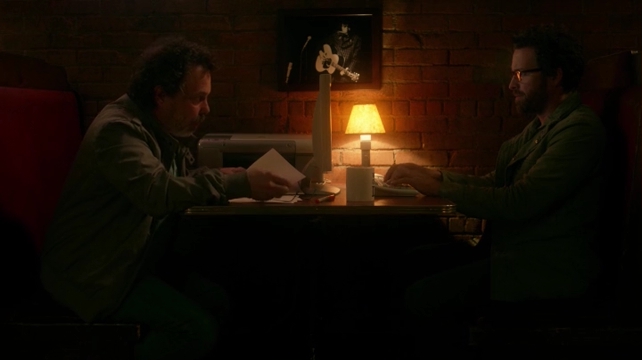
Imagine what you would say to God if you had his undivided attention and he asked you what you honestly thought of his actions? That’s what a memoir is at its core after all – revealing every thought, decision and action of your life for everyone to judge. So Metatron asked the obvious question:
Metatron: “Why?”
God: Can you be more specific? I kind of get that question a lot about pretty much everything.
Metatron: Why did you create life?
That opens up infinite possibilities for where the story will go. So we are now engrossed in a barroom “What’s the meaning of life” conversation with God himself. All while we are gently, continually reminded that this is indeed God. Between Metatron’s blasphemy, fear, contrition and brave challenges to God as an author, he repeatedly expressed his awe for God the Almighty. He expressed complete reverence for the goodness of God:
You invented souls! Souls! Try shining a light on that.
I remember the first time I saw you. All the angels were terrified, but I wasn’t. The feeling of your light was… was just beyond measure.
God: Why did you try to be me?
Metatron: That was just a sad, pathetic cry for attention.
God: Whose attention were you trying to get?
Metatron: Yours. You are light… and beauty. Creation. Wrath. Damnation and salvation.
I was moved by Metatron’s awestruck admiration of his God, at the same time Metatron confessed his sins and acknowledged his fallibility. The whiny, annoying, megalomaniac was transformed into a sympathetic character. Metatron’s mea culpa and long overdue humility convinced me of his sincerity, and allowed me to grant him permission to speak on behalf of humanity. He did so boldly, as any good editor should to an author, challenging why God was idly watching his magnificent, beyond-comprehension creation be destroyed when he clearly has the power to stop it.
The story has inched its way to speaking the harsh truths, as they’ve been portrayed in the Supernatural universe at least. I admired Metatron for having the hutzpah to say exactly what this show has wanted to say to God for 11 years:
Metatron: You want to write the best-selling autobiography of all time, you explain to me — tell me why you abandoned me. Us.
God: Because you disappointed me. You all disappointed me.
Metatron: No, look. I know I’m a disappointment, but you’re wrong about humanity. They are your greatest creation because they’re better than you are. Yeah, sure, they’re weak and they cheat and steal and…destroy and disappoint. But they also give and create and they sing and dance and love. And above all, they never give up. But you do.
Metatron was saying things that Dean would say to God given the chance. Humanity is worth fighting for with every fiber of your being.

Dean cannot abide quitting. In fact, he said those very words to Sam as Sam lay without hope of survival:
Dean: Hey, listen to me! Sam!
Sam: We’re not gonna make it.
Dean: No, no, no. There’s no quitting here.
As it was all unfolding, I have to admit that several moments gave me pause. Actually, more than that. They made me worried and uncomfortable. For example, trashing God. Come on now! How far can you push my religious tenets? I don’t mind yelling at God, doubting him, challenging him – we all do it at one point or another in our lives. Maybe every day of our lives. A few lines went well beyond that, though, and actually made me squirm in my seat:
This — This pile of self-doubt and nebbishness flooded the Earth? Followed up Sodom with a blockbuster Gomorrah? Created as much as he punished? No! Unh-unh! The guy I worked for — total badass! And yes, he could be a dick. Now, that guy… had some stories to tell. And he has a lot to answer for.
At his climactic moment of desperation, Dean also referred to God as a dick.
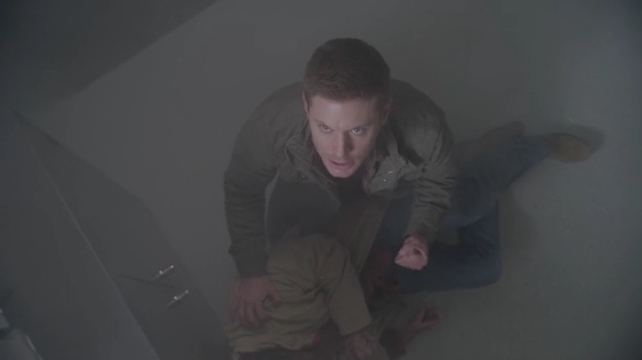
Then there were God’s chapters:
This is what I was talking about.
“Chapter 10 — Why I Never Answer Prayers, and You Should Be Glad I Don’t.”
And chapter 11 — “The Truth About Divine Intervention and Why I Avoid It at All Costs.”
I think subconsciously I was moving over a bit on the couch so that the lightning might miss when it struck me down for watching the heresy! At least I’d have a chance of only getting slightly singed! There was a purpose to the back talk, though. Things that needed to be said by an editor to a writer.
Besides the street-talk references to God, I also chafed that the female deity represented destruction, evil and everything bad in the entirety of existence.
God: I thought if I could show my sister that there was something more than just us, something better than us, then maybe she’d change. Maybe she’d stop… being…her. But… every time I’d build a new world… she’d destroy it….
Metatron: If Amara wipes the slate, the slate’s destroyed. Everything is destroyed. All your great work… lost forever.
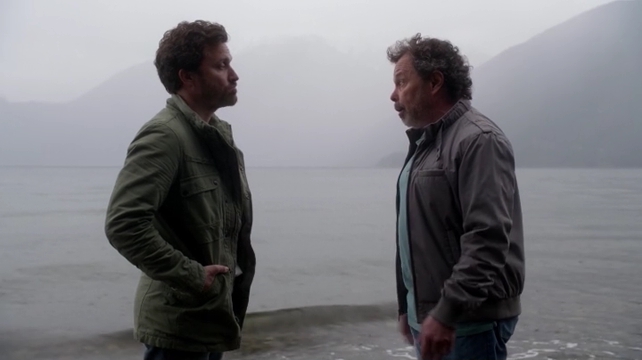
Really? That’s how the feminine of the universal power is portrayed?? Then I considered the alternatives. I would have been upset if another male was introduced as a sibling deity, and one world can’t have two benevolent creators, so the story didn’t have much of a choice but to depict an evil sister. For the time being, I’m going to hope there is more back story. After all, we haven’t heard Amara’s viewpoint yet and this season has clearly teed-up the abused child theme. I think God’s point of view was meant to be one-sided.
I know some of you are rather stuck on this point, and on a few other points of the story, actually, but I saw things differently. Sam DID release the darkness. God did nothing more than state fact. Did God answer Dean’s prayer? No, I don’t think so. God gave the amulet back to SAM, not Dean. Dean threw it away and lost faith. Sam picked it up and kept his faith. Sam asked God for help; Metatron just convinced God to answer. (Again, another whole review is needed to talk about these topics!)
Which leaves us with the biggest question of all. Why did God intervene? Why, after 11 years, did Supernatural introduce God to the story? Beyond shock, beyond the magnitude of the ever–increasing stakes faced by the brothers, why God? I think the answer lies between the lines.
[Hit ‘Next’ for “The meta, and really interesting side, of Metatron and God’s conversation”



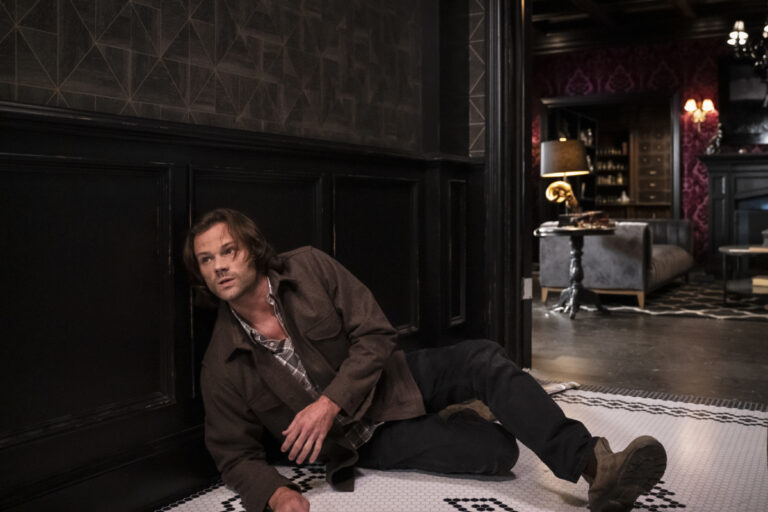
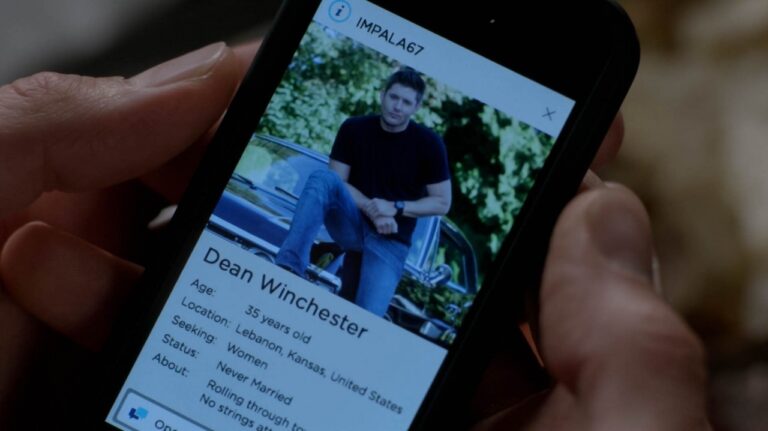
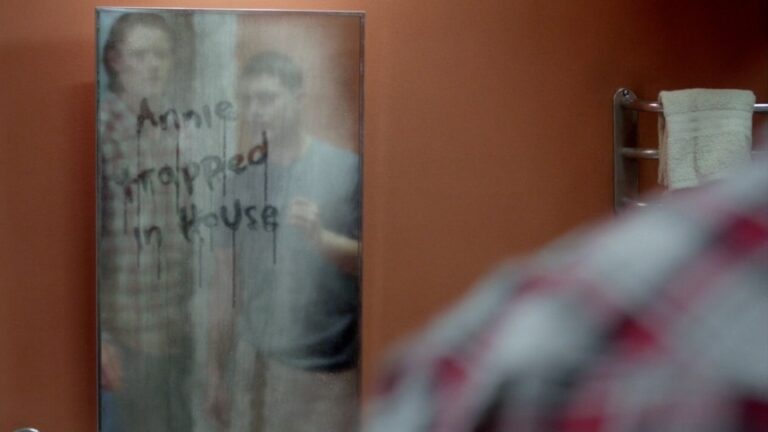
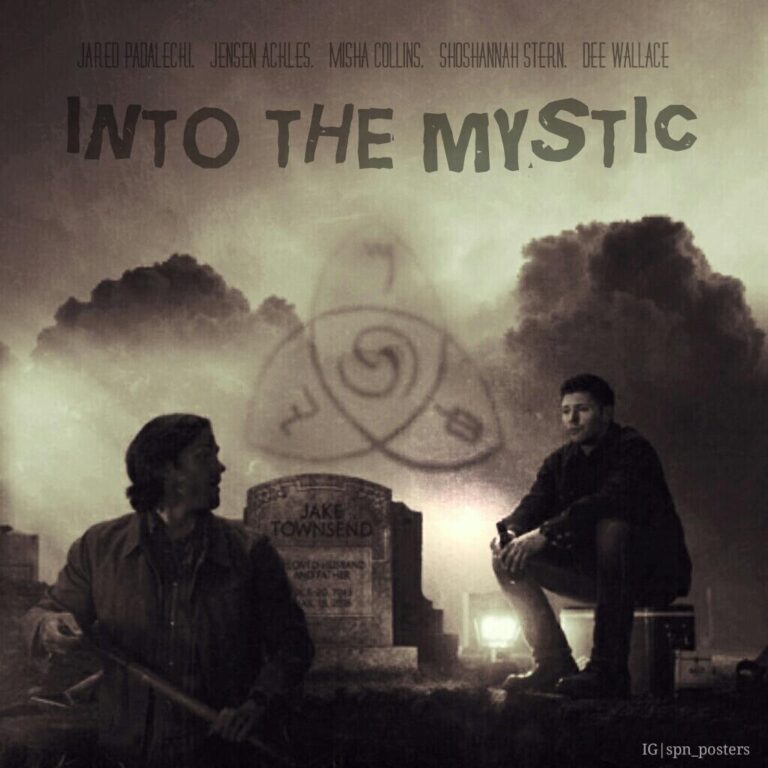
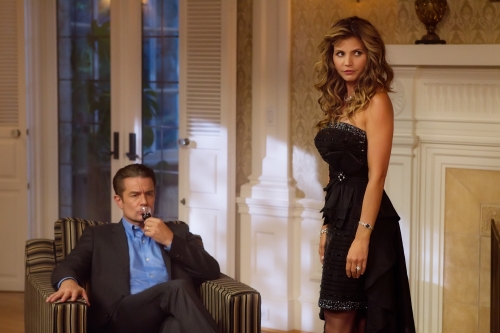
Leave a Reply